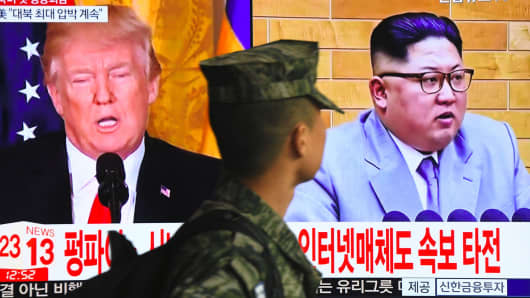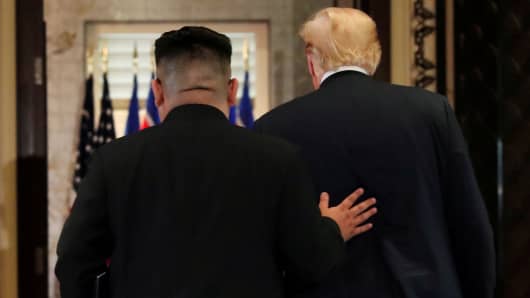The photos from the Singapore summit were meant to impress, but the substance was thin indeed — for a vague pledge to work towards complete denuclearization of the Korean Peninsula our president gave up U.S.-South Korean joint military exercises in a surprise move that whacked both South Korea and Japan.
Maybe it will all work out. But to understand what President Donald Trump is really after, let me put this into perspective.
Trump is a businessman, so let's think of him as a new CEO and his supporters as the shareholders. When new CEOs come in they work hard to impress shareholders. They sometimes use the company's good credit rating to borrow money, even for such things as share buybacks just to boost the stock. Or they may propose to sell assets, to get more cash on the balance sheet.
They usually look for good news to trumpet on Wall Street, and go on "road shows" with investors to seek even more investment in the company and further raise the share price. Of course, the best actually work the company itself, improving products, worker morale, and relations with customers.




